Xi Jinping doubles down on his Putin bet. ‘I have a similar personality to yours’
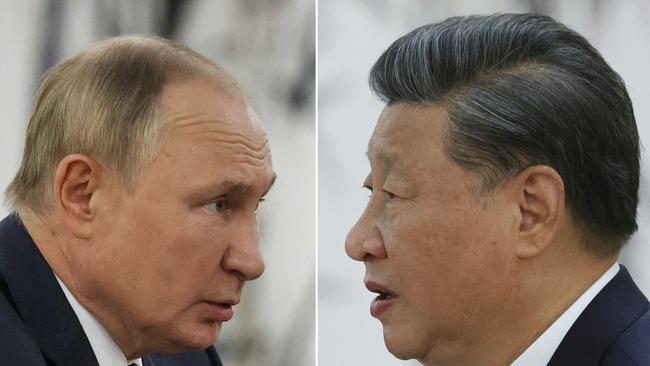
Behind the diplomatic appearances, however, Mr. Xi is deepening his long-term bet on Russia.
In recent weeks, he has instructed his government to forge stronger economic ties with Russia, according to policy advisers to Beijing, building on a trade relationship that has strengthened this year and become a lifeline to Moscow in the face of Western pressure.
The plan includes increasing Chinese imports of Russian oil, gas and farm goods, more joint energy partnerships in the Arctic and increased Chinese investment in Russian infrastructure, such as railways and ports, the advisers say.
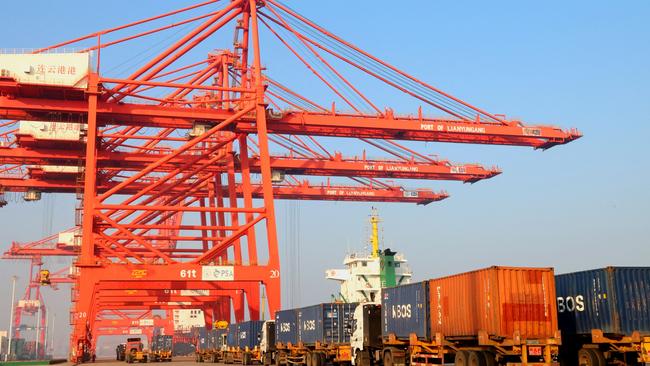
The tightening ties are the latest twist in the bilateral relationship, which intensified just before the Russian invasion, when a joint declaration asserted there were “no limits” to the partnership. After appearing to have second thoughts about aligning itself so closely with Moscow, China has since moved to cement their cooperation.
“Xi has been strengthening China’s relations with Russia largely independent of the Russian invasion,” said Yun Sun, director of the China program at the Stimson Center, a Washington think tank. “The relationship may well be becoming ever closer.”
In a written statement, China’s Foreign Ministry said: “China and Russia are comprehensive strategic cooperative partners of each other. The development of bilateral relations is based on the principles of non-alliance, non-confrontation and non-targeting of third parties.”
The Kremlin’s press service didn’t respond to a request for comment.
China’s partnership with Russia has helped to shelter Moscow from the economic fallout of the Western sanctions, enabling leader Vladimir Putin to sustain his war. It is also furthering a global divide, discouraging many developing countries reliant on China for trade from taking sides in the conflict.
Russia and China have long sought to dull the U.S.’s influence in the world, a shared objective that has come into sharper focus in recent years as the two nations have grown confident they can reshape an international order that both view as biased in favour of the West and its allies.
Mr. Xi’s longstanding admiration for Russia and Mr. Putin has fortified his quest to enhance ties with China’s northern neighbour. The 69-year-old Chinese leader is expected to visit Moscow next year, likely after China’s legislative sessions in March, Russia’s ambassador to Beijing, Igor Morgulov, recently told reporters. The visit, if it occurs, will mark the two leaders’ 40th face-to-face meeting.
China’s Foreign Ministry said Beijing and Moscow “will continue to carry out exchanges at all levels.”
Still, the escalating war in Ukraine has more recently forced Beijing to walk a diplomatic tightrope. China still needs Western technology and close ties with other foreign powers to deliver on its aspiration of overtaking the U.S. as the world’s biggest economy.
Mr. Xi, who came to power in 2012, also faces challenges at home with China in its worst economic slowdown in decades and severe Covid-control restrictions that had sparked a wave of nationwide protests. Meanwhile, his entente with Mr. Putin has left China increasingly isolated on the world stage.
In recent months, Mr. Xi has sought to temper relations with Russia publicly to avoid provoking a collective Western backlash, say foreign-affairs analysts and government advisers in Beijing. Most notably, the Chinese leader recently told other world leaders that he opposes the use of nuclear weapons in Ukraine — after Mr. Putin threatened to do so.
China hasn’t directly condemned the Russian invasion. It also continues to avoid arms deliveries or other overt support for Mr. Putin’s war effort.
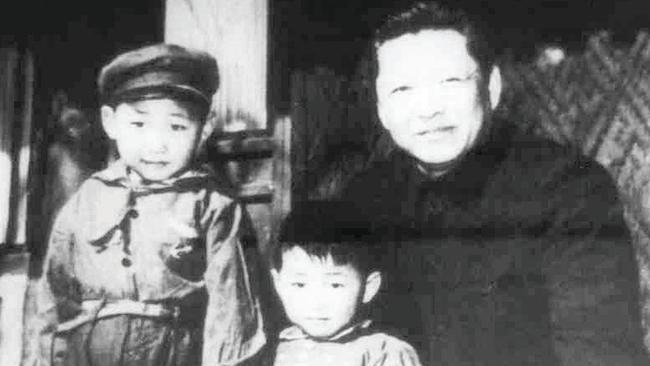
Mr. Xi’s pro-Russian leanings stem in part from his family and biography. In 1953, the year Mr. Xi was born, Mao Zedong launched a campaign to study the Soviet Union as a model for China’s political, economic and military systems.
Mr. Xi’s father, Xi Zhongxun, a party revolutionary who fought alongside Mao, went to the Soviet Union in the late 1950s to study its heavy industry.
The movement profoundly shaped Mr. Xi’s youth, leading to a deep-rooted admiration for Soviet values, history and culture, according to historians.
His “Russia complex,” as dubbed by some, was so deep that nearly three decades of a Soviet-China split over ideological and other differences didn’t shake it. Relations between Beijing and Moscow improved following the Soviet Union’s collapse and the establishment of the Russian state in 1991, with both seeing the U.S. as a competitor.
In 2013, on the eve of Mr. Xi’s state visit to Russia, his first foreign trip as China’s president, Mr. Putin remarked that the two countries were forging a special relationship. The authoritarian leaders shared similar visions of restoring their countries to past glory. “I have a similar personality to yours,” Mr. Xi told Mr. Putin during his visit to Moscow.
The two have since developed a ritual of wishing each other happy birthday.
After coming to power, Mr. Xi sought to change China’s leadership structure, aligning it more with the “Putin model”. He has downgraded the powerful Standing Committee of the Politburo, which in turn, gives himself more authority.
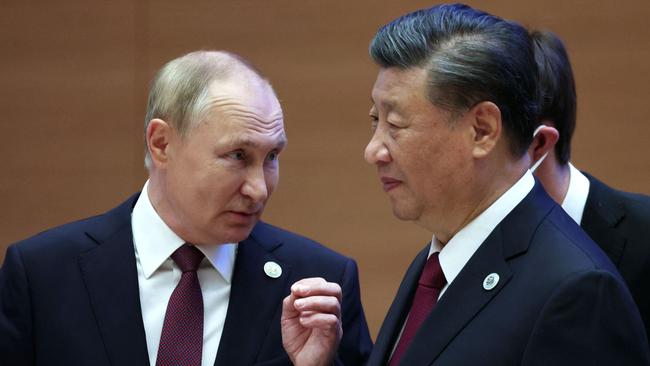
Economic ties between China and Russia have been deepening since Moscow’s seizure of Crimea from Ukraine in 2014.
Beijing’s refusal to join Western sanctions against Russia has made some Russian business sectors, including energy and farm-goods producers, increasingly reliant on Chinese markets and financing.
A sign of Mr. Xi’s support for Russia came soon after Donald Trump became U.S. president in early 2017. Mr. Trump’s campaign promise to improve relations with Russia caused alarm in the gated leadership compound in Beijing.
A report sent up by Mr. Xi’s alma mater, the prestigious Tsinghua University, argued that Russia’s economy had no future, implying little gain for China in a closer relationship, according to people with knowledge of the matter.
“Nonsense,” Mr. Xi wrote in the margins of the report, the people say.
Mr. Trump’s trade war against China helped push the Asian country closer still to Russia, say policy advisers in Beijing.
In the early summer of 2019, shortly after Mr. Trump accused China of reneging on a negotiated trade agreement and imposed further punitive tariffs on Chinese products, Mr. Xi travelled to Moscow for the eighth time as China’s top leader.
As Beijing severely curtailed its purchases of American soybeans and other farm products during the trade conflict, China turned to Russia for substitutes.
Trade between China and Russia has more than doubled to $146.9 billion last year from $95.3 billion in 2014, according to Chinese customs data. This year, it is expected by both officials and analysts to hit a record of $200 billion.
Crude oil makes up half of China’s total Russian imports, and Russia has become increasingly reliant on its southern neighbour for electronics, such as broadcasting equipment and computers.
Beijing over the years has also positioned itself as a partner in developing oil and natural gas projects in Russia’s Arctic zone.
When the U.S. and the European Union restricted Russia’s ability to access Western funding following the Crimea annexation, state-owned firms from China helped Russia move forward on a natural gas project in the Arctic.
A Chinese energy giant and a state investment fund have taken equity stakes in the project, Chinese banks have financed it, and Chinese buyers are gearing up for big purchases.
Russia in July became the third largest market for payments made in yuan outside mainland China, according to SWIFT, the messaging system used by financial institutions to process international payments.
As recently as February, Russia didn’t even make SWIFT’s list of the top 15 yuan markets.
Russia’s state-owned energy giant Gazprom said recently it would start billing China in yuan and roubles for natural gas supplies, while Russia’s VTB bank said it was launching money transfers to China in yuan.
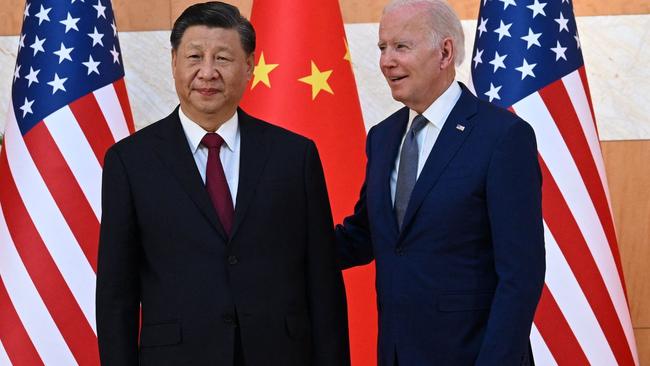
In late 2021, Beijing started planning for a summit as soon as Mr. Putin accepted Mr. Xi’s invitation to attend the opening of the Beijing Winter Olympics in February.
At the time, Western nations including the U.S., the U.K. and Canada were laying the groundwork for a diplomatic boycott of the Games over China’s human-rights record. The Biden administration was about to kick off a Summit for Democracy in early December that sought to establish an alternative to Beijing’s rule.
Those moves infuriated Beijing and drove Mr. Xi to make a bold statement about China’s relations with Russia, declaring the partnership had “no limits”.
The intention wasn’t to declare allegiance with Russia in the case of war, say the people close to Beijing’s decision-making, but rather to send a message that the two countries were resolute in confronting what they perceived as mounting American threats.
As Russian troops amassed on Ukraine’s borders, and Chinese officials were presented with U.S. intelligence that Russia was going to invade, Beijing dismissed that scenario as unlikely.
Russia’s invasion so soon after the February gathering forced Beijing to walk a delicate diplomatic line.
In a March videoconference with President Biden, Mr. Xi sought to distance China from Russia’s war without condemning it. Mr. Xi told Mr. Biden he didn’t know about the Russian leader’s invasion plans in advance, according to people briefed on the conversation. Mr. Xi told the U.S. president he invited Mr. Putin in return for the latter’s invitation to attend the opening of the 2014 Sochi Winter Olympics, the people say.
Mr. Xi met again with Mr. Putin in Uzbekistan in September on the sidelines of a regional summit, where the mood was subdued compared with the “no limits” gathering earlier in the year.
As the two sat on opposite sides of two long, rounded tables, the Russian leader began taking swipes at the U.S., and expressed appreciation to Mr. Xi for “the balanced position of our Chinese friends in connection with the Ukrainian crisis.” Then Mr. Putin said: “We understand your questions and concerns about this,” without elaboration.
During the exchange, Mr. Xi sought to play up China’s role as a benevolent superpower by pledging to work with Russia to restore stability. The Chinese leader also intended to use the meeting to telegraph his discomfort with Russia’s aggression in Ukraine, according to the policy advisers to Beijing.
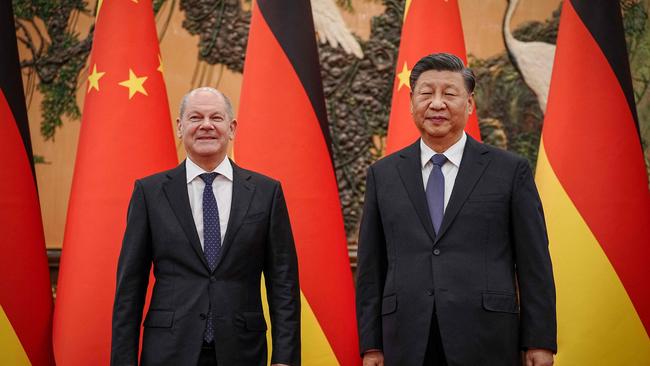
The message was particularly aimed at Washington’s European allies, the advisers say. Beijing was in discussion with Germany at the time about a visit from Chancellor Olaf Scholz. Then, in the meeting with Mr. Scholz in Beijing, the Chinese leader made clear he opposed “the use of, or threats to use, nuclear weapons.”
He affirmed that position in his meeting with President Biden on the Indonesian island of Bali in mid-November, according to the White House.
The official Chinese account of the meeting made no mention of such a comment, a deliberate omission designed to avoid giving Mr. Putin the impression the two leaders were teaming up against him, say the people close to Beijing’s thinking.
By reinforcing his opposition to nuclear weapons, Mr. Xi indicated he thinks he has the upper hand in the bilateral relationship, policy advisers and foreign-affairs experts say.
“It doesn’t suggest that China is abandoning Russia, but it does suggest that China sees snubbing Russia as acceptable now,” said Ms. Sun of the Stimson Center. “China’s dominance in the relationship is growing,” she added.
The Wall St Journal

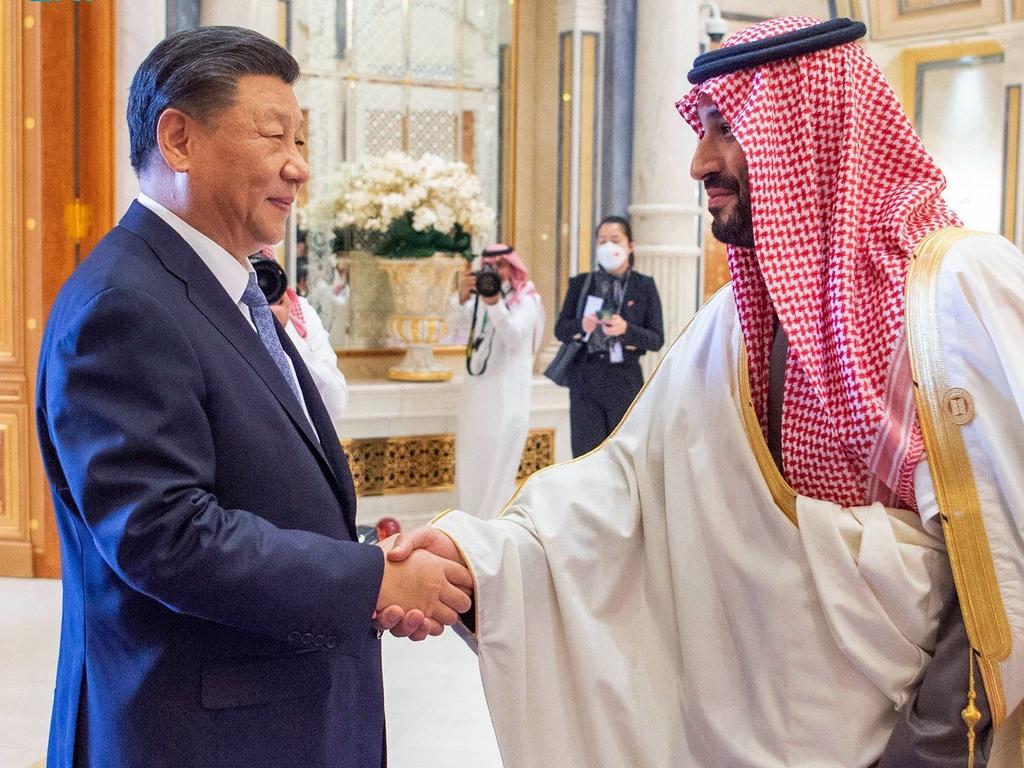
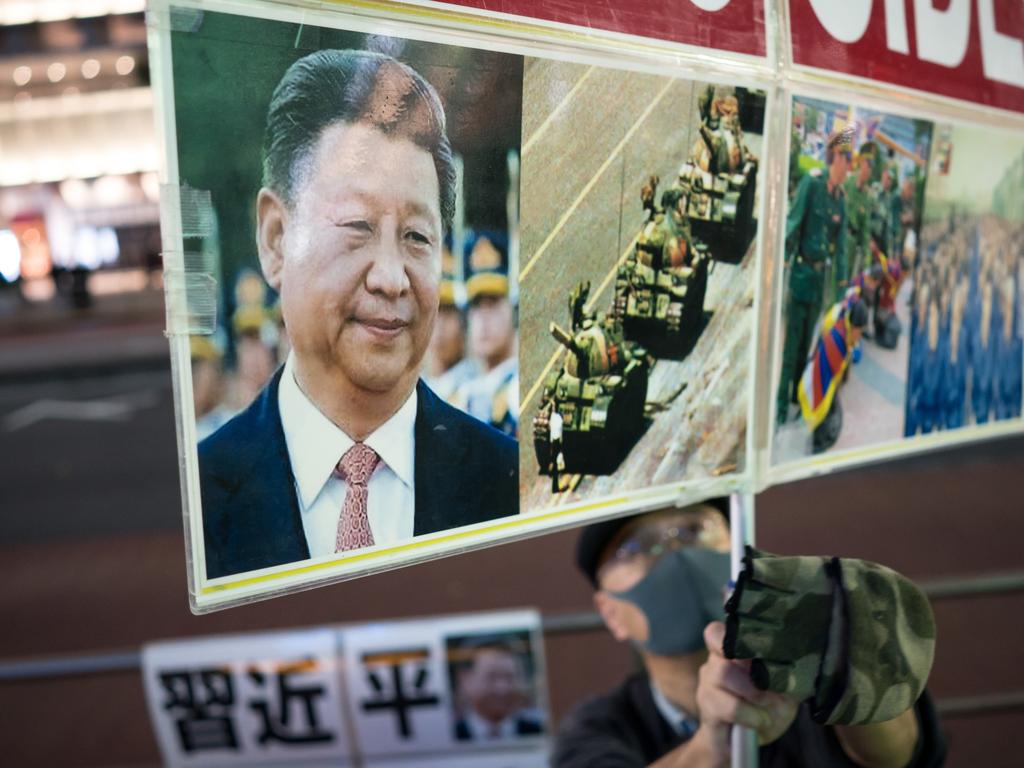
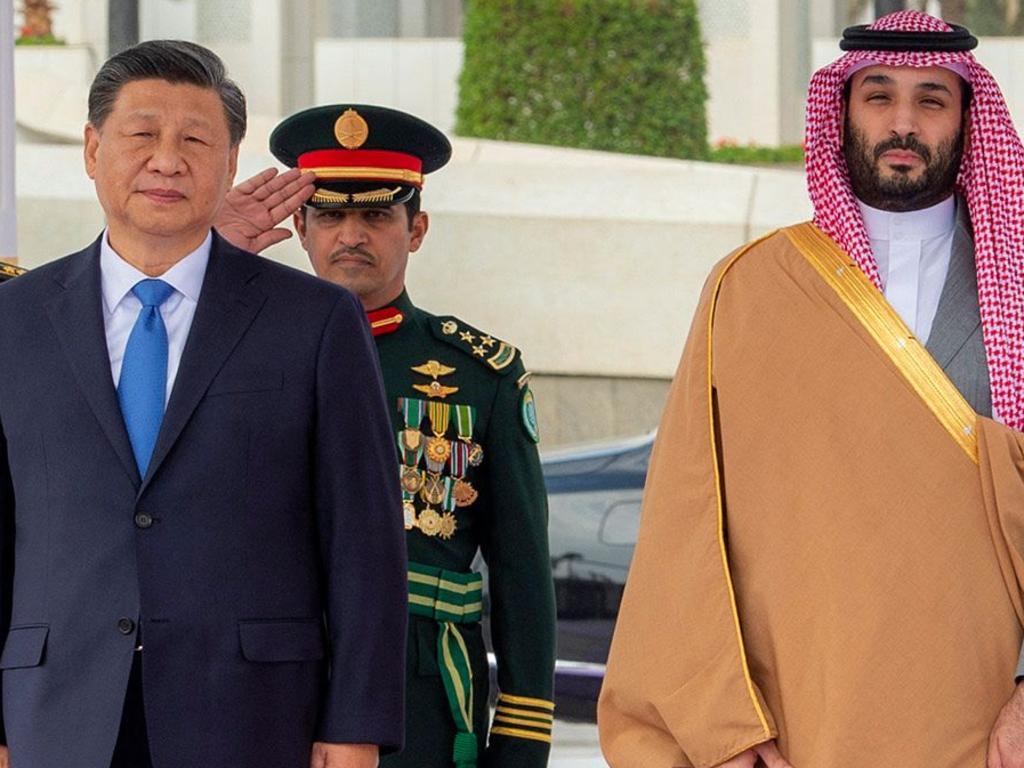



China’s leader Xi Jinping has in recent months tried to put public distance between Beijing and Moscow as Russia has suffered defeats in its war on Ukraine.